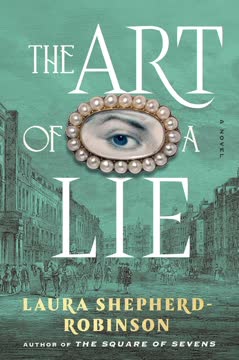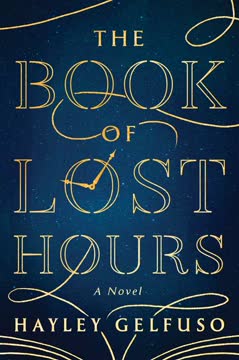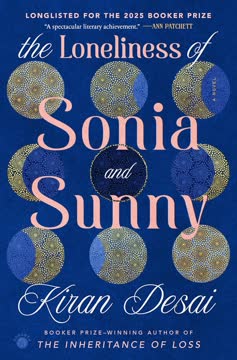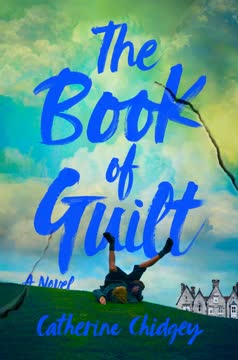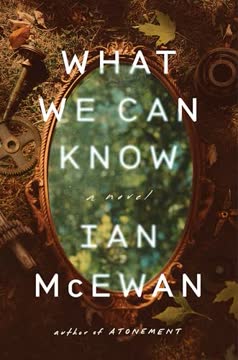Plot Summary
Two Inches Short
Cal Jenkins, born with one leg two inches shorter than the other, grows up in Bonhomie, Ohio, feeling both set apart and spared by his "defect." Rejected for military service in WWII, he's left behind as friends and neighbors go to war, haunted by guilt and longing for purpose. His father, Everett, a hoarder and war veteran, is both a burden and a mystery, shaping Cal's sense of inadequacy and resilience. Cal's early years are marked by loss, isolation, and a yearning to matter, setting the stage for the choices and mistakes that will define his adulthood. The town's rhythms, its divisions and connections, mirror Cal's own fractured sense of belonging.
Bonhomie's Patchwork Lives
Bonhomie is a microcosm of mid-century America, its neighborhoods divided by class, race, and religion, yet interwoven by shared history and daily life. The war transforms the town, draining it of young men and filling it with anxiety, patriotism, and suspicion. Cal's marriage to Becky Hanover, a sensitive and quietly odd young woman, is both a refuge and a challenge. Becky's ability to "hear" the dead and her outsider status echo Cal's own sense of difference. Their courtship, marriage, and the birth of their son, Skip, unfold against a backdrop of community rituals, family tensions, and the ever-present shadow of war.
Unlikely Love Letters
Cal and Becky's marriage is tender but imperfect, shaped by their quirks and the pressures of adulthood. Becky's séances and Cal's work at the hardware store become sources of pride and friction. The arrival of Margaret Salt, a beautiful, restless woman with her own haunted past, introduces a new current of desire and possibility. Margaret's story—abandoned as a baby, raised in orphanages, determined to reinvent herself—intersects with Cal's in unexpected ways. Their brief, passionate affair is both a fulfillment and a betrayal, leaving lasting scars on all involved.
The Spirit Liaison
Becky's reputation as a medium grows, drawing a steady stream of grieving townspeople to her parlor. Her sessions offer comfort, closure, and sometimes disappointment. The line between solace and exploitation is thin, and Becky wrestles with the ethics and burdens of her calling. Her work brings her into contact with the pain of war, the mysteries of death, and the limits of her own understanding. As her fame spreads, she becomes both a source of hope and a target for suspicion and ridicule, straining her marriage and her sense of self.
War's Unseen Wounds
Margaret's husband, Felix, is a man of ambition and secrets. His wartime service in the Pacific leaves him physically and emotionally scarred, struggling to reconnect with Margaret and to find meaning in civilian life. The trauma of combat, the loss of comrades, and the weight of unspoken desires shape his every decision. His friendship—and more—with a fellow sailor, Augie, becomes a defining, unspoken love. Felix's inability to share his true self with Margaret or the world sets the stage for the unraveling of their marriage and the generational wounds that follow.
The Salt Marriage
Margaret and Felix's marriage is a study in longing and disappointment. Both carry secrets—Margaret's orphan past, Felix's sexuality and wartime love—that they cannot share. Their attempts to build a life together in Bonhomie are marked by moments of joy, but also by sexual incompatibility, unfulfilled dreams, and the pressures of conformity. The birth of their son, Tom, is both a blessing and a complication, as questions of paternity and belonging simmer beneath the surface. The war's end brings no easy peace, only new challenges and unresolved grief.
Homefront and Heartbreak
As the war ends, the characters struggle to adapt. Cal and Becky's marriage is tested by Becky's growing independence and Cal's sense of inadequacy. Margaret, restless and dissatisfied, finds herself drawn to Cal, seeking in him the passion and connection missing from her marriage. Their affair is brief but transformative, leaving both changed and guilty. The birth of Tom, whose paternity is uncertain, becomes a silent pivot around which the families' futures turn. The town, too, is changed—by loss, by new arrivals, by the slow churn of progress and prejudice.
The Affair and Its Echoes
Cal and Margaret's affair is a collision of need and opportunity, a moment of escape from the constraints of their lives. For Cal, it is both a revelation and a source of shame; for Margaret, a fleeting taste of the freedom she has always sought. The consequences ripple outward—affecting Becky, Felix, and the children in ways none can foresee. The affair's secrecy becomes a corrosive force, shaping choices, silences, and the stories the characters tell themselves and each other.
Children and Inheritance
The next generation inherits the legacies of their parents' choices. Skip, Cal and Becky's son, is bright, restless, and searching for purpose. Tom, raised by Felix and Margaret, is sensitive, creative, and haunted by questions of identity. Their friendship is deep and formative, but also marked by unspoken tensions and the invisible threads that bind and separate them. The truth of Tom's parentage hovers, unspoken, as both boys come of age in a world shaped by war, loss, and the shifting tides of American life.
The Unraveling
The accumulated weight of secrets—affairs, paternity, unspoken grief—begins to crack the foundations of both families. Margaret, unable to bear the constraints of her life, leaves Bonhomie, abandoning Felix and Tom. Cal and Becky's marriage is shaken by the revelation of Cal's infidelity and the truth about Tom. The children, caught in the crossfire, struggle to make sense of their own identities and loyalties. The town, too, is changing, as the postwar boom gives way to new uncertainties and divisions.
Secrets and Silences
The truth about Tom's parentage is finally revealed, years after the fact, in a painful, necessary reckoning. Felix, Becky, and Cal must confront the consequences of their choices—the lies told to protect, the silences maintained out of fear or love. Tom, now an adult, is left to piece together his own story, grappling with anger, betrayal, and the possibility of forgiveness. The past cannot be undone, but it can be faced, and in the facing, something like healing becomes possible.
The Next Generation
As the Vietnam War looms, Skip enlists, seeking purpose and escape; Tom, shaped by loss and uncertainty, becomes a protester and a seeker. Their paths diverge, but the bond between them—half-brothers, friends, rivals—remains a central thread. The war brings new wounds, new losses, and new reckonings. The parents, now aging, must watch as their children make choices they cannot control, and as the world changes in ways they could never have imagined.
War Returns
Skip's death in Vietnam is a shattering blow, reopening old wounds and forcing the families to confront the limits of love, protection, and understanding. Becky's gift, once a source of comfort to others, becomes a source of pain as she searches in vain for contact with her lost son. Cal, wracked by guilt and grief, struggles to find meaning in the face of senseless loss. Tom, left behind, must navigate adulthood with the weight of secrets and the ache of absence.
Loss and Forgiveness
The aftermath of Skip's death is a crucible for all the characters. Becky and Cal, separated by betrayal and pain, find their way back to each other through shared grief and the slow work of forgiveness. Felix, facing his own mortality, seeks reconciliation with Tom and with himself. Margaret, haunted by her own choices, remains a distant, enigmatic presence, her absence shaping the lives of those she left behind. The possibility of healing emerges—not as a sudden revelation, but as a gradual, hard-won acceptance.
The Truth Revealed
As an adult, Tom finally learns the full truth of his parentage, the affair, and the web of lies and silences that shaped his childhood. The revelation is both a shock and a release, forcing him to reevaluate his relationships with Felix, Cal, and the memory of Skip. The confrontation is painful, but necessary, opening the door to a more honest, if complicated, future. The past cannot be changed, but it can be understood, and in that understanding, a measure of peace is possible.
The Long Fallout
The characters age, their lives marked by loss, regret, and the slow accumulation of wisdom. Felix's death brings the families together one last time, offering a chance for reconciliation and closure. Margaret's return is brief and fraught, but her apology, however incomplete, is a step toward healing. Becky and Cal, having weathered betrayal, grief, and the passage of time, find a renewed sense of partnership and purpose. The next generation, shaped by the choices and mistakes of their elders, carries the story forward.
The Last Goodbyes
As the twentieth century draws to a close, the characters reflect on what they have lost and what endures. The bonds of family—chosen and inherited—are tested but not broken. The possibility of forgiveness, of connection across time and distance, remains. Letters, messages, and unspoken words, memories, and the stories we tell ourselves and each other become the means by which the past is honored and the future imagined. The final message is one of hope, resilience, and the enduring power of love.
Letters Across Time
The novel closes with the image of Becky, now elderly, finally hearing her lost son's voice—an affirmation that love and forgiveness persist beyond death. The letters written and received, the words spoken and unspoken, become the threads that bind the generations. The past lives on in memory, in story, and in the choices we make. The days, the days, the days: the measure of a life is not in its perfection, but in its capacity for hope, for change, and for love.
Characters
Cal Jenkins
Cal is defined by his physical difference—a leg two inches short—and the emotional legacy of a difficult childhood. His sense of inadequacy, shaped by his father's trauma and hoarding, drives him to seek meaning and belonging. Cal's marriage to Becky is both a comfort and a challenge, tested by his insecurities and her otherworldly gifts. His affair with Margaret is a moment of passion and escape, but also a source of lifelong guilt and consequence. As a father, Cal is loving but flawed, struggling to connect with Skip and, unknowingly, with Tom. Over time, he learns the hard lessons of regret, forgiveness, and the quiet heroism of endurance.
Becky Hanover Jenkins
Becky is marked by her ability to "hear" the dead—a gift that sets her apart and shapes her identity. Her marriage to Cal is a partnership of outsiders, both seeking acceptance and meaning. Becky's séances offer comfort to others but become a burden as her own losses mount. Her journey is one of self-discovery, resilience, and the search for forgiveness—not just for others, but for herself. As a mother, she is nurturing and wise, but also vulnerable to the wounds of betrayal and grief. Her eventual reconciliation with Cal is hard-won, rooted in empathy and the enduring power of love.
Margaret Anderson Salt
Margaret's life is shaped by abandonment—left as a baby, raised in orphanages, always searching for home. Her beauty and intelligence open doors, but her inability to settle or trust leads to a series of reinventions and escapes. Her marriage to Felix is built on hope and denial, unraveling under the weight of secrets and unmet needs. Her affair with Cal is both a rebellion and a desperate grasp at connection. Margaret's abandonment of her family is both a tragedy and an act of self-preservation, leaving a legacy of pain and unanswered questions for those she leaves behind.
Felix Salt
Felix is a man of contradictions—driven and capable, yet haunted by secrets he cannot share. His wartime service is both a source of pride and trauma, his love for Augie a defining, unspoken truth. His marriage to Margaret is marked by longing and disappointment, his relationship with Tom a mix of devotion and guilt. Felix's struggle to reconcile his desires with the expectations of his time leads to isolation and regret. In his final years, he seeks reconciliation—with Tom, with himself, and with the memory of the love he lost. His story is one of survival, compromise, and the search for peace.
Skip Jenkins
Skip is the beloved son of Cal and Becky, a boy marked by his parents' hopes and fears. His friendship with Tom is deep and formative, but also shadowed by the secrets of their origins. Skip's decision to enlist in Vietnam is both an act of agency and a tragic echo of the generational wounds that shape his family. His death is a shattering loss, the reverberations of which force the characters to confront the limits of love, protection, and understanding. In memory, Skip becomes a symbol of lost potential and the enduring ache of absence.
Tom Salt
Tom is the child at the center of the novel's web of secrets—a boy raised by Felix and Margaret, but the biological son of Cal and Margaret. His friendship with Skip is a lifeline, his search for identity a central thread. As an adult, Tom must grapple with the revelation of his true parentage, the legacy of abandonment, and the challenge of forgiveness. His journey is one of self-discovery, anger, and, ultimately, acceptance. Tom's story is a testament to the resilience of the human spirit and the possibility of healing, even in the face of profound loss.
Everett Jenkins
Cal's father, Everett, is a World War I veteran whose experiences have left him damaged and withdrawn. His hoarding and suspicion are both a burden and a form of self-protection. Everett's relationship with Cal is fraught, marked by misunderstanding and missed opportunities. In old age, he becomes a surprising source of wisdom and reconciliation, urging Cal and Becky to make peace while they still can. His death is both an ending and a release, a reminder of the ways in which the past shapes—and can be transcended by—the present.
Bishop
Bishop is Felix's friend and, eventually, his partner—a fellow veteran who offers companionship, understanding, and a model of acceptance. Their relationship, though constrained by the norms of their time, is a source of comfort and growth for both men. Bishop's presence helps Felix navigate the challenges of aging, illness, and regret, offering a vision of love that is both ordinary and extraordinary. His role in the story is that of a quiet catalyst, helping to bring about healing and closure.
Ida and Roman Hanover
Becky's parents, Ida and Roman, are emblematic of their generation—shaped by hardship, determined to provide for their family, but limited by their own prejudices and blind spots. Roman's business acumen and Ida's warmth are both a support and a source of tension for Becky and Cal. Their marriage, marked by its own secrets and reconciliations, offers a model—imperfect but enduring—of the possibility of forgiveness and the importance of staying the course.
Mrs. Dodson
Mrs. Dodson is Becky's neighbor and confidante, a woman marked by loss but also by resilience and grace. Her belief in Becky's gift, and her willingness to seek comfort and connection through it, help to ground the novel's exploration of grief, memory, and the possibility of contact across the divide between the living and the dead. In death, she becomes a reassuring presence, reminding Becky—and the reader—of the enduring power of love and the importance of letting go.
Plot Devices
Interwoven Narratives and Generational Echoes
The novel's structure is built on interwoven narratives, moving fluidly between past and present, parents and children, husbands and wives. The use of shifting perspectives allows the reader to see events from multiple angles, deepening the emotional resonance and complexity of the story. Secrets—of parentage, desire, betrayal—are central plot devices, their revelation delayed and layered to maximize tension and impact. The generational echoes—war, abandonment, longing—create a sense of history repeating, even as the characters struggle to break free.
Letters, Messages, and Unspoken Words
Letters—written, received, lost, or never sent—are a recurring motif, symbolizing the characters' attempts to reach across distance, time, and death. Becky's séances, Margaret's postcards, Skip's letters from Vietnam, and the final messages exchanged between the living and the dead all serve as plot devices to explore the limits and possibilities of communication. The novel is rich in unspoken words, missed connections, and the ache of things left unsaid, heightening the emotional stakes and underscoring the importance of honesty and vulnerability.
Foreshadowing and Circularity
The novel employs foreshadowing—through dreams, visions, and the repetition of key phrases and images—to create a sense of inevitability and fate. The circular structure—returning to places, letters, and unresolved questions—reinforces the idea that the past is never truly past, and that healing is a process rather than a destination. The use of symbolic objects (the buckeye tree, the Dolice painting, the letter to the future) ties the narrative together, offering moments of connection and meaning amid the chaos of life.
The Supernatural as Metaphor
Becky's gift is both literal and metaphorical—a means of exploring grief, memory, and the longing for connection. The séances are plot devices that allow for the expression of unspoken emotions, the resolution of unfinished business, and the possibility of forgiveness. The supernatural elements are grounded in the characters' psychological realities, serving as metaphors for the ways in which the past haunts the present and the dead continue to shape the living.
Analysis
Buckeye is a sweeping, multi-generational novel that explores the complexities of family, identity, and the long shadow of history. At its core, the book is about the ways in which secrets—kept out of love, fear, or shame—shape lives across decades, and how the search for connection and forgiveness is both universal and deeply personal. Through its richly drawn characters and interwoven narratives, the novel examines the costs of silence, the persistence of longing, and the possibility of redemption. The use of spiritualism and the supernatural is not merely decorative, but serves as a powerful metaphor for the ways in which the past continues to speak, and the dead continue to matter. The story is unflinching in its portrayal of loss—personal, generational, national—but also deeply hopeful, insisting on the possibility of healing, even in the face of irreparable wounds. In an era marked by division, war, and rapid change, Buckeye offers a nuanced meditation on what it means to belong, to forgive, and to carry forward the stories that make us who we are. Its ultimate lesson is that love and forgiveness, though often hard-won, are the only forces capable of bridging the divides—between people, generations, and even worlds.
Last updated:
Review Summary
Buckeye is a highly acclaimed novel set in small-town Ohio, spanning from WWII to the 1970s. It follows two families, exploring themes of love, loss, and forgiveness across generations. Readers praise the beautifully developed characters, emotional depth, and historical context. Many compare it to works by Elizabeth Strout and Ann Tyler. The audiobook narration by Michael Crouch is particularly commended. While some found the middle section slow, most reviewers were deeply moved by the story, calling it a modern classic and potential book club favorite.
Similar Books
Download PDF
Download EPUB
.epub digital book format is ideal for reading ebooks on phones, tablets, and e-readers.

